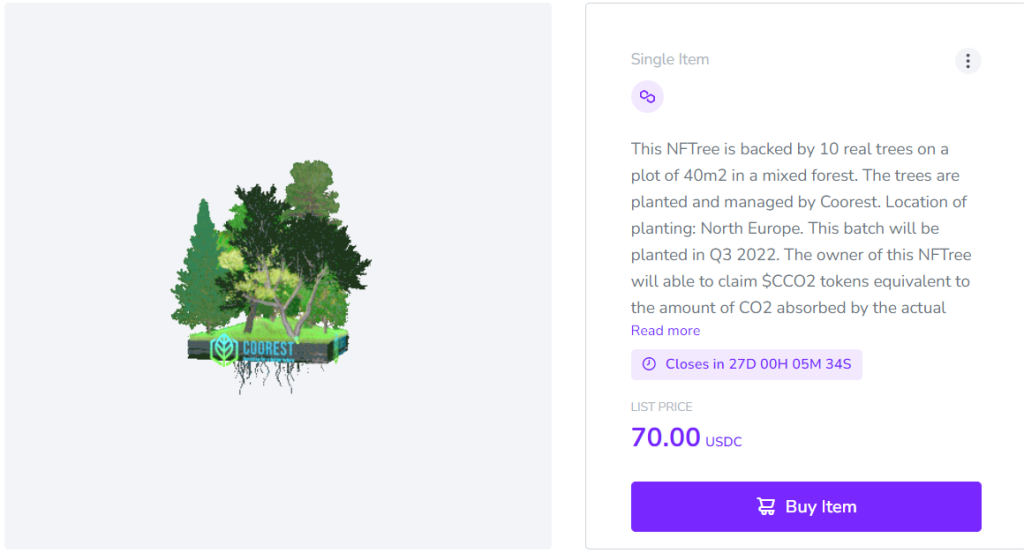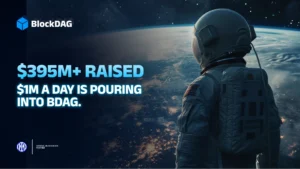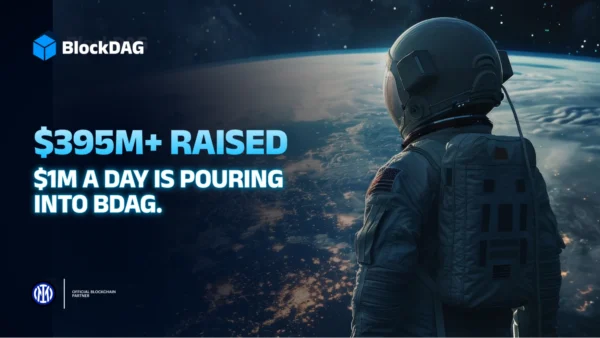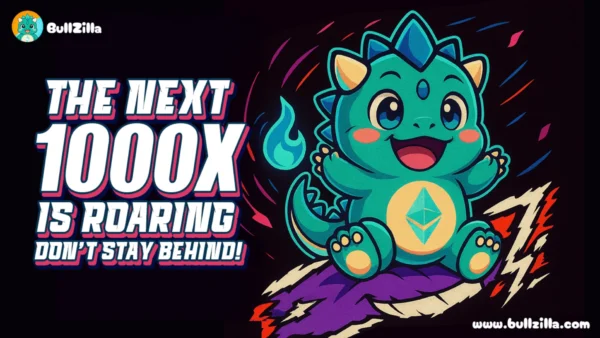
Coorest, a green NFT project that is introducing tokenized trees and CO2 to Web3, has announced today the company’s integration of Chainlink on Polygon mainnet. Through the implementation of this integration, it will be able to gain access to geographic carbon data stored on the Floodlight Chainlink node. Since Coorest has access to this data, the team will be able to correctly monitor the amount of tokenized CO2 that is produced by NFTrees owners.

NFTrees are tokenized trees produced by Coorest that can be bought on the Venly and Vulcan Forge markets. Various NFTrees are supported by a solitary tree or a collection of trees from various locations across the globe. Coorest is making it possible for ecological farmers, forest protection groups, and other organizations to sell the ongoing capture of CO2 from their trees by utilizing a platform called NFTrees.
Reinventing The Current On-chain Carbon Credit Ecosystem
As each NFTree grows in the physical world, its owners will earn tokenized CO2 in proportion to the amount of carbon dioxide their NFTree is offsetting. Even for younger trees that have more room to expand, owners have the potential to receive increased tokenized carbon returns. These returns are proportional to the growing amount of carbon that is being offset.
To create an end-to-end framework for tree tokenization, dissemination and monitoring for tokenized CO2, and reimbursement for end users, Coorest has developed a three-step tokenization process. To begin, NFTrees are minted and can be backed by either a single tree or a collection of trees. The second step is that CO2 tokens are perpetually produced and distributed to the NFTree owners. In the third step, CO2 tokens can be burned in exchange for an NFT receipt that includes information on the number of tokens destroyed, the timestamp, and the reason for redeeming them.
According to William ten Zijthoff, Founder and CEO of Coorest: “Generating tokenized CO2 from on-chain trees is a way of reinventing the current on-chain carbon credit ecosystem from the source. Chainlink enables us to access high-quality satellite data from Floodlight, helping power the on-chain measurement and tokenization of carbon offsets from NFTrees.”
Accessing High-Quality Geospatial Data Via Chainlink
Even if blockchain technology and smart contracts are capable of providing on-chain verification of carbon credits, these technologies do not have the capability built-in to access data from the outside world. By utilizing Chainlink, Coorest is granted access to the top-quality geospatial data on biomass and carbon analytics that is maintained by Floodlight. After that, the data is used to quantify the impact of NFTrees and appropriately distribute tokenized CO2 to owners.
This brings attention to the actual impact that each NFTree has and begins the process of establishing a new standard for tokenized CO2 that is based on scientific measures. Chainlink is the world’s largest decentralized oracle network, and its major annual event, SmartCon, will take hold in New York City next week. Speakers at the event will include the founder and CEO of FTX, Sam Bankman-Fried, as well as Eric Schmidt, who served as CEO of Google in the past.
Meanwhile, Coorest previously received a social impact grant from the Chainlink Community Grants Program in order to facilitate the development of a decentralized application for carbon trading and offsetting as well as a satellite-based global biomass monitor. This funding was provided in order to encourage the utilization of smart contracts in the service of sustainable climate initiatives.









